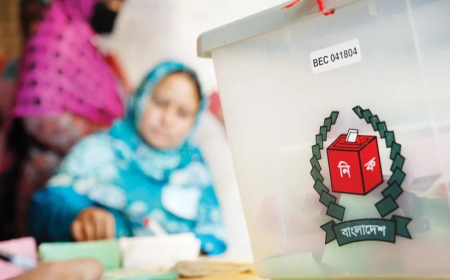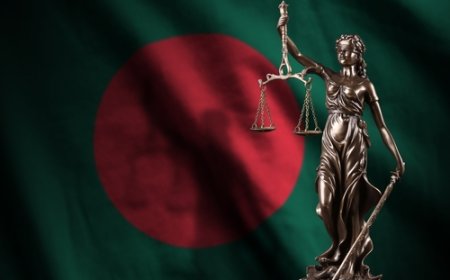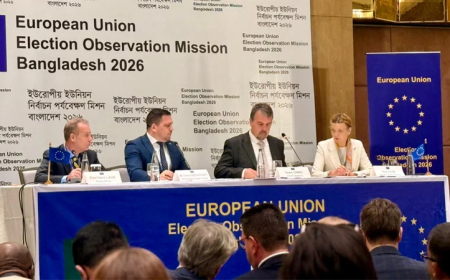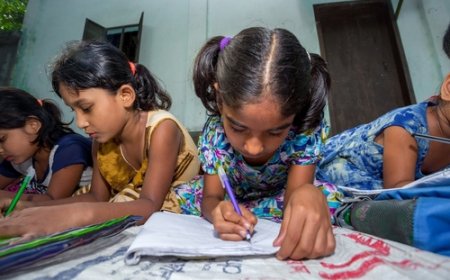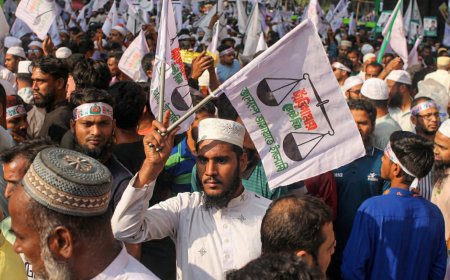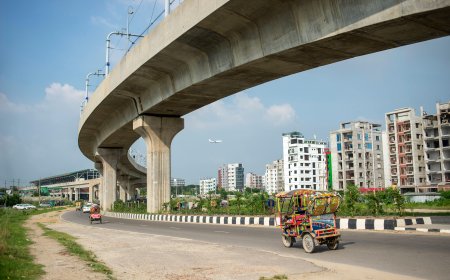Restoring Democracy, Rebuilding Trust
Why BNP’s return is essential for Bangladesh’s future

Bangladesh stands at a crossroads. Amid rising authoritarianism, erosion of democratic institutions, and deepening economic inequality, the people are searching for a credible political alternative -- one with historical roots, tested leadership, and a forward-looking vision. The BNP could emerge as that alternative. With its legacy of democratic resilience, reformist leadership, and a 31-point agenda for national reconstruction, BNP can embody the hope for a better future.
A Legacy Built on Trust and Nationalism
From its inception, BNP has played a vital role in preserving national stability and advocating democratic values. It was founded in opposition to one-party rule, with President Ziaur Rahman championing multi-party democracy and introducing the inclusive doctrine of "Bangladeshi Nationalism." His vision prioritized agricultural development, self-reliance, and pragmatic foreign policy, helping rebuild a war-torn nation.
Following Zia’s assassination, Begum Khaleda Zia led the party with resilience. As Bangladesh’s first female Prime Minister, she spearheaded significant reforms in education, infrastructure, and international trade. Her tenure was marked by a strong stance on judicial independence, civil liberties, and press freedom -- pillars now under severe threat.
Tarique Rahman: Leadership Amid Adversity
Tarique Rahman, BNP’s current Acting Chairperson, symbolizes the party’s new generation of leadership. Despite enduring years of political persecution -- false charges, imprisonment, harassment, and life-threatening attacks -- he has consistently called for national reconciliation and reform over revenge.
His recent acquittals in politically motivated cases -- including the money laundering case (December 2024), the August 21 grenade attack case (December 2024), a bribery case (March 2025), and a treason case (March 2025) -- not only vindicate his stance but also expose the machinery of state-led propaganda against him. Far from retreating, he has remained active in party reorganization and youth engagement through digital platforms, embracing political satire and freedom of expression rather than suppressing them.
Tarique Rahman’s calm diplomatic demeanor and reform-minded leadership have bolstered BNP’s credibility at home and abroad, offering a vision of governance grounded in accountability and inclusion.
BNP’s 31-Point Reform Agenda: A Blueprint for a New Bangladesh
The BNP’s 31-point roadmap, if implemented, will not be a mere list of promises -- it could well be a comprehensive framework for democratic transition and institutional rebuilding. Its key pillars include comprehensive democratic reforms, beginning with the establishment of a neutral, non-party caretaker government to ensure credible elections.
It calls for a bicameral legislature to foster deeper political deliberation and the reduction of prime ministerial powers with term limits to prevent autocratic rule. Emphasis is placed on restoring judicial independence, maintaining constitutional balance, and safeguarding press freedom and digital rights. Additionally, it promotes inclusive economic policies aimed at social justice and urges the creation of a national platform to foster political unity and reconciliation.
These proposals reflect a vision for a democratic Bangladesh -- one that restores faith in governance and empowers its citizens.
Generational Perspectives on Trust
Public sentiment toward BNP could span generations and offer insight into the party’s enduring relevance:
-
Gen Z (18–30 years): Raised under the shadow of repression, campus violence, and censorship, this generation could find in BNP’s calls for justice, liberty, and participatory governance a source of hope.
-
Middle-aged (31–50 years): Having witnessed development under Khaleda Zia’s leadership, many in this group regard BNP as a competent and stabilizing force.
-
Seniors (51+ years): With lived memories of the post-independence crisis and Ziaur Rahman’s stabilizing leadership, their loyalty to BNP is anchored in gratitude and trust.
Why BNP’s Return Matters
BNP’s potential comeback is not just a matter of political rivalry -- it’s a national imperative. Its victory could end authoritarian rule and restore democratic norms, ensure institutional accountability and transparency, empower youth through education and employment, promote social harmony in a diverse society and reignite national unity through participatory leadership.
In short, BNP is the only force with the legacy, structure, and roadmap to realign Bangladesh with its democratic foundations.
A Path Forward
BNP’s journey is far from easy. The road is obstructed by entrenched authoritarian forces, disinformation campaigns, and systemic manipulation. Yet the party carries with it the weight of history, the will of the people, and a vision for reform.
Ziaur Rahman’s foundational philosophy, Khaleda Zia’s development legacy, and Tarique Rahman’s strategic leadership have combined to make BNP more than just an opposition -- it is a national revivalist force. In today’s fractured political landscape, its resurgence could mark the rebirth of democracy in Bangladesh. The people have placed their trust in the BNP throughout the last decade. Now it must rise to lead.
Benozir Shah is an urban planner and development specialist, he can be reached at [email protected]. Faysal Kabir is an Australia-based Data Professional and Urban Planner, he can be reached at [email protected].
What's Your Reaction?







